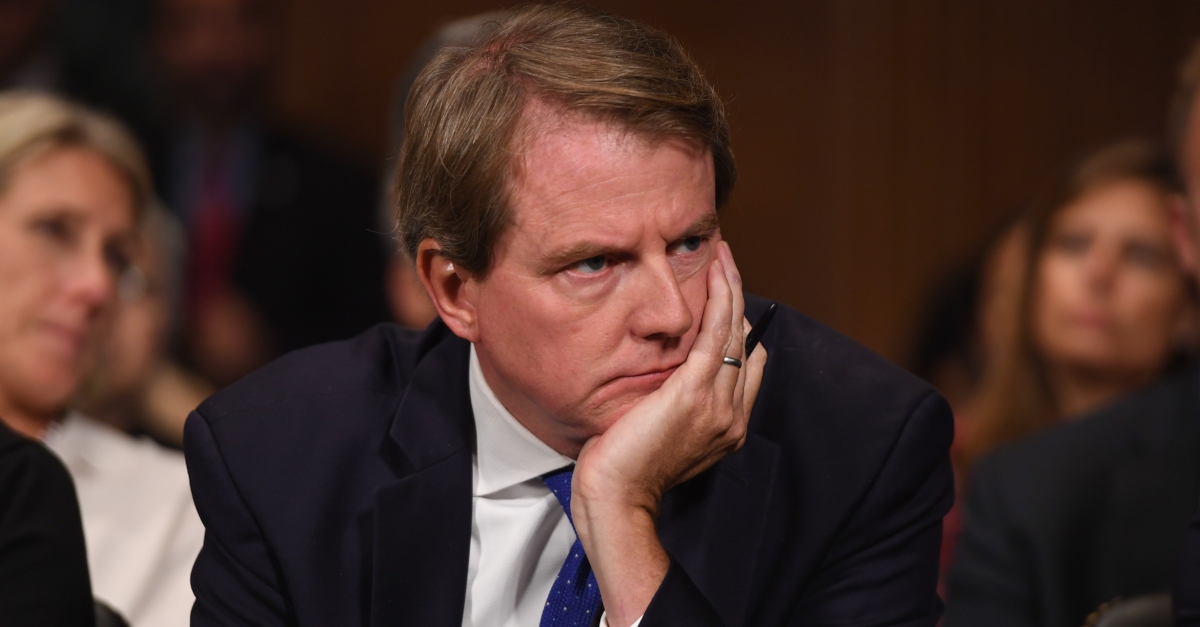
The House Judiciary Committee recently filed a petition to obtain the underlying grand jury material relative to the Mueller report and the Russia investigation. Tangentially, the Committee sought to have the same judge consider its subpoena for former White House Counsel Don McGahn, although the matters/cases are unrelated. On Wednesday, a D.C. federal judge correctly rejected the committee’s request, which the Justice Department claimed was an effort to “game the system.”
In essence, the Justice Department alleged that the committee was attempting to “game the system” by asking the same judge, whom Democrats on the committee appear to “like,” preside over both cases. Generally speaking, the law allows two “related” cases to be heard by the same judge if they involve common issues of fact or law and/or involve common facts or transactions such that the matters would be related.
The committee argued that the two cases are related because they both tied into the “impeachment investigation” of the president. The committee also noted that hearing the cases together would promote judicial efficiency. In response, the Department argued that the cases are not related because they have no “common issues of fact” and/or do not stem from a “common event or transaction” despite the committee’s effort to “bundle” them under its overreaching “investigation” of the president. The Department also noted that judicial efficiency would not be promoted by linking the cases, that the committee should have filed suit when it found out about McGahn’s refusal to testify, and that a random judicial assignment is appropriate and would not hinder judicial efficiency.
According to the Department, the committee was trying to “shop” for a judge. This oftentimes happens if a party likes a particular judge (i.e. sometimes this is based on the belief that a particular judge is more sympathetic to a specific cause or is more likely to rule in the party’s favor). In this case, D.C. District Court Chief Judge Beryl Howell denied the committee’s request. More particularly, Howell, who is presiding over the grand jury case, stated:
“[A]t first blush, the House Judiciary Committee’s view that the related case rule applies is understandable. Nonetheless, closer examination demonstrates that these connections between the two cases are too superficial and attenuated for the instant McGahn Subpoena Case to qualify[.]”
As Howell correctly pointed out, the committee’s request to unseal grand jury information called for the application and analysis of the law under the Federal Rules of Criminal Procedure, while the enforcement of the McGahn subpoena and the related immunity claim was a civil matter. Howell also opined that the two cases involved entirely different legal issues and that “judicial efficiency is not served where two cases present such different factual and legal issues, as is the circumstance here.”
As a result of Howell’s decision, the cases will remain separate, despite the committee’s efforts to establish a non-existent or hypothetical relationship or nexus between the two. While the issue of “judge-shopping” did not appear to play a role in Howell’s ultimate ruling, the ruling solidified that the cases will be heard separately for the time being. It also protected against the possibility of shopping for a “favorable” judge, which is one reason why random judicial assignments are so important.
Elad Hakim is a political writer and commentator and an attorney. His articles have been published in The Washington Examiner, The Daily Caller, The Federalist, The Algemeiner, The Western Journal, American Thinker and other online publications.
https://thoughtfullyconservative.wordpress.com
Twitter: @ThoughtfulGOP
[Image via Saul Loeb/AFP/Getty Images.]
This is an opinion piece. The views expressed in this article are those of just the author.